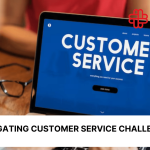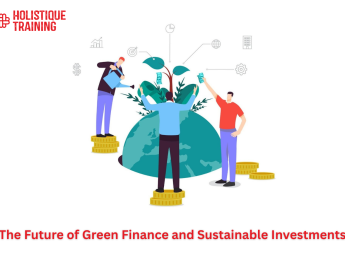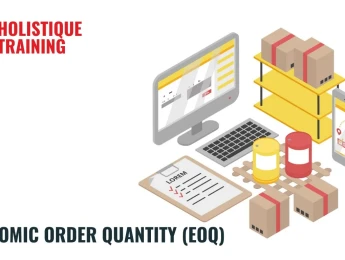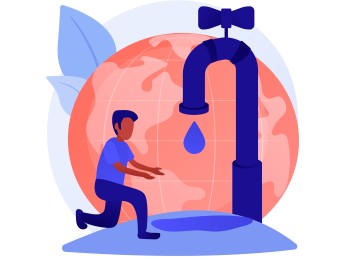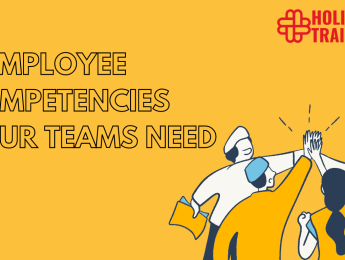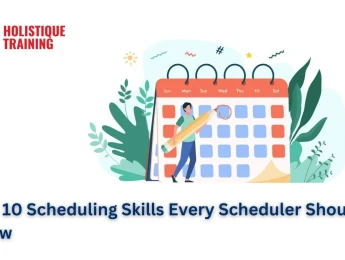- Table of Contents
- Introduction
- What Is Hospitality Marketing?
- The Importance of Hospitality Marketing
- Building Brand Identity
- Attracting and Retaining Guests
- Boosting Revenue
- Staying Competitive
- Adapting to Changing Trends
- 6 Hospitality Marketing Strategies
- 1. Content Marketing
- 2. Email Marketing
- 3. Social Media Marketing
- 4. Search Engine Optimisation (SEO)
- 5. Influencer Marketing
- 6. Review Management
- Steps to Develop a Hospitality Marketing Strategy
- 1- Set Clear Objectives:
- 2- Know Your Audience:
- 3- Competitive Analysis:
- 4- Budget Allocation:
- 5- Content Creation:
- 6- Marketing Channels:
- 7- Campaign Execution:
- 8- Measurement and Analysis:
- 9- Feedback Loop:
- Hospitality Marketing Channels
- 1. Website
- 2. Social Media
- 3. Online Travel Agencies (OTAs)
- 4. Email Marketing
- 5. Search Engines
- 6. Review Sites
- 7. Influencer Partnerships
- Marketing Challenges Facing Hospitality Brands
- Intense Competition
- Seasonality
- Online Reputation Management
- Technology Adoption
- Economic Uncertainty
- Rising Customer Expectations
- Sustainability and Environmental Concerns
- Changing Booking Patterns
- Rising Marketing Costs
- Data Privacy Regulations
- 5 Hospitality Marketing Trends
- 1. Sustainability
- 2. Personalisation
- 3. Contactless Experiences
- 4. Local Experiences
- 5. Artificial Intelligence (AI)
- 3 Great Hospitality Marketing Real-world Examples
- 1. Airbnb
- 2. Marriott Bonvoy
- 3. Four Seasons Hotels and Resorts
- Hospitality Marketing Pre- and Post-COVID-19
- Pre-COVID-19
- Post-COVID-19
- Conclusion
Introduction
Welcome to the world of hospitality marketing, where the blend of art and science creates unforgettable experiences for guests and drives business success. In this comprehensive guide, we'll delve deep into the world of hospitality marketing, exploring what it is, its importance, effective strategies, steps to develop a winning plan, marketing channels, challenges faced by the industry, emerging trends, and real-world examples. Additionally, we'll examine how the landscape has transformed pre- and post-COVID-19. So, let's embark on this journey to understand the captivating realm of hospitality marketing.
What Is Hospitality Marketing?
Hospitality marketing is a multifaceted discipline that revolves around promoting and selling services offered by businesses in the hospitality industry. It encompasses hotels, restaurants, resorts, travel agencies, event venues, and more. At its core, hospitality marketing aims to create enticing experiences that resonate with customers, ultimately driving bookings, revenue, and loyalty.
The Importance of Hospitality Marketing
In the realm of the hospitality industry, marketing isn't just a matter of promoting a place to stay or a restaurant to dine at; it's the art of crafting captivating narratives and experiences that have the power to leave indelible marks on guests. It's about creating memories, fulfilling dreams, and exceeding expectations. Here, we'll delve deeper into why hospitality marketing is of paramount importance:
Building Brand Identity
In a world teeming with options, brand identity becomes the beacon that guides potential guests towards your establishment. Successful hospitality marketing helps you define and communicate what makes your brand unique and memorable. Whether it's the historic charm of a boutique hotel, the exotic flavours of a restaurant, or the serenity of a spa retreat, effective marketing tells a compelling story that resonates with your target audience. It's the promise of an experience, and that promise is what sets you apart from the competition.
Attracting and Retaining Guests
At the heart of any hospitality business lies the need to attract new guests and nurture lasting relationships with existing ones. Marketing allows you to understand the preferences and desires of your target audience, enabling you to create tailored experiences that speak directly to their hearts. It's about anticipating their needs and desires, whether it's a cosy room with a view, a sumptuous meal prepared by a renowned chef, or a rejuvenating spa treatment. By doing so, you not only attract guests but also keep them coming back for more.
Boosting Revenue
For any business, the bottom line matters, and effective hospitality marketing is a potent tool for revenue growth. A well-executed marketing strategy can lead to higher occupancy rates, increased bookings, and improved revenue streams. It's not just about filling rooms or tables; it's about optimising pricing, creating enticing packages, and maximising the value of each guest's visit. Marketing is the engine that drives the financial success of your establishment.
Staying Competitive
The hospitality industry is a highly competitive arena, with new players constantly entering the field. To thrive, your brand must stay relevant and top of mind. Effective marketing is your means of staying ahead in this ever-evolving landscape. It allows you to adapt to changing customer expectations, leverage emerging technologies, and respond to shifts in the market. It's your toolkit for innovation and adaptation.
Adapting to Changing Trends
Trends in travel, dining, and leisure activities are in a constant state of flux. What was popular yesterday may be passé tomorrow. Hospitality marketing allows your business to remain agile and responsive to these trends. Whether it's the rise of sustainable travel, the demand for contactless services in a post-pandemic world, or the desire for immersive local experiences, marketing helps you align your offerings with the evolving preferences of your guests. It ensures that your brand stays current and in tune with the zeitgeist.
In essence, hospitality marketing is the bridge that connects your brand to your audience, the compass that guides your business towards success, and the guardian of your reputation. It's not merely about selling a product or a service; it's about creating a world that guests want to be a part of. It's about igniting emotions, fulfilling aspirations, and leaving a lasting, positive impression. It's about turning a fleeting visit into an enduring memory, and in doing so, it becomes the cornerstone of your establishment's prosperity. In an industry built on hospitality, marketing is the art of extending a warm, inviting hand to the world and saying, "Come, let us create something beautiful together."
6 Hospitality Marketing Strategies
In the dynamic world of hospitality, marketing strategies are the bedrock upon which successful guest experiences and business growth are built. These strategies are not just tactics; they are carefully crafted approaches that combine artistry and data-driven precision. Here, we will take a more in-depth look at these six hospitality marketing strategies and explore why they are indispensable for any brand in the industry:
1. Content Marketing
Table 1: Content Marketing Essentials
Key Components | Description |
High-quality Blog Posts | Engaging articles that provide valuable information about local attractions, events, and travel tips. |
Visual Storytelling | Captivating images and videos showcasing your property and the surrounding area. |
User-generated Content | Encouraging guests to share their experiences on social media and review platforms. |
Content marketing is the art of telling compelling stories that resonate with your target audience. In the realm of hospitality, this means creating content that transports potential guests to your destination, evoking emotions and anticipation. High-quality blog posts filled with travel tips, local insights, and captivating narratives draw readers in and position your brand as a trusted source of information. Visual storytelling through photos and videos showcases your property's allure and the beauty of the surrounding area, inspiring wanderlust. User-generated content, where satisfied guests share their experiences on social media and review platforms, serves as authentic endorsements that build trust and credibility.
2. Email Marketing
Email marketing is a versatile and potent tool in the hospitality marketer's arsenal. It offers a direct line of communication with past, present, and potential guests. Personalised email campaigns carry tailored messages, special offers, and exclusive promotions right to the inbox of your audience. Building and segmenting your email list based on guest preferences ensures that your messages resonate with recipients, whether they're seeking romantic getaways, family adventures, or culinary experiences.
3. Social Media Marketing
Social media platforms provide a dynamic canvas for painting your brand's personality, forging connections with guests, and promoting your services. Each platform has its own unique strengths, and understanding how to leverage them effectively is key. Instagram's visual allure makes it perfect for showcasing stunning images of your property, cuisine, and amenities. Instagram Stories and Reels offer short, engaging content to capture attention. Facebook creates a space to share guest reviews, event updates, and promotions, fostering a welcoming community. Twitter, with its real-time nature, allows you to engage with customers, capitalise on trending hashtags, and show your brand's personality. TikTok provides an opportunity to create fun, shareable content that highlights the unique aspects of your brand, making it especially appealing to a younger audience.
4. Search Engine Optimisation (SEO)
Search Engine Optimisation (SEO) is the art and science of ensuring that your website appears prominently in search engine results pages (SERPs). It's about making your digital presence discoverable. SEO involves optimising your website's content, meta tags, and user experience to improve visibility and attract organic traffic. By crafting high-quality, relevant content and employing sound technical SEO practices, you can increase your chances of appearing at the top of search results, making it easier for potential guests to find you.
5. Influencer Marketing
Influencer marketing is a strategy that leverages the popularity and credibility of influencers to expand your reach and engage your target audience. Collaborating with influencers who align with your brand values can create authentic endorsements. Influencers can share their experiences at your establishment with their engaged followers, effectively offering a trusted recommendation. This strategy can be particularly powerful when influencers share personal stories, whether it's about a romantic weekend getaway, a family-friendly resort, or a gourmet dining experience.
6. Review Management
Table 3: Review Management Essentials
Strategy | Description |
Respond Promptly | Address guest reviews, both positive and negative, with professionalism and empathy. |
Encourage Reviews | Actively ask satisfied guests to leave reviews on platforms like TripAdvisor, Yelp, and Google My Business. |
Use Feedback | Utilise guest feedback to make improvements and show your commitment to delivering exceptional experiences. |
In the digital age, online reviews wield significant influence. Effective review management involves not only responding to reviews promptly but also actively encouraging satisfied guests to leave positive feedback. It's about fostering a culture of feedback and improvement. Addressing negative reviews with professionalism and empathy not only mitigates the impact but also demonstrates your commitment to guest satisfaction. Moreover, guest feedback is a goldmine of insights that can guide your efforts to continuously enhance the guest experience.
In summary, these six hospitality marketing strategies are not just tools in a marketer's kit; they are the means to create meaningful connections with your audience, drive bookings and revenue, and elevate your brand above the competition. It's about crafting narratives that inspire travel, creating experiences that forge lasting memories, and building relationships that transcend a single stay or meal. These strategies are the essence of hospitality marketing, where artistry and data-driven precision converge to create magic for your guests and success for your business.
Steps to Develop a Hospitality Marketing Strategy
Developing a successful hospitality marketing strategy is akin to architecting the blueprint for your brand's success. It's a meticulous process that blends creativity, market insight, and data-driven decision-making. Let's delve deeper into each of the steps involved in crafting a winning hospitality marketing strategy:
1- Set Clear Objectives:
Before you dive into any marketing activities, it's crucial to define your goals. What do you want to achieve with your marketing efforts? Are you looking to increase occupancy rates, boost restaurant bookings, enhance brand awareness, or achieve something else entirely? Setting clear, measurable objectives provides a roadmap for your strategy and helps you gauge your success.
2- Know Your Audience:
Understanding your target audience is fundamental. Demographics, psychographics, and behaviour patterns play a significant role in crafting marketing messages that resonate. Conduct market research to gain insights into your potential guests' preferences, desires, and pain points. This knowledge forms the basis for tailoring your messaging effectively.
3- Competitive Analysis:
You're not operating in isolation; your competitors are vying for the same pool of guests. Conduct a thorough analysis of your competitors' marketing strategies. Identify gaps in the market, areas where you can differentiate, and opportunities for innovation. This analysis provides valuable insights into your competitive advantage.
4- Budget Allocation:
Determine your marketing budget. Allocate resources to different marketing strategies and channels based on your objectives and the potential return on investment (ROI). Consider both short-term and long-term strategies, and be prepared to adjust your budget as needed to optimise your efforts.
5- Content Creation:
Content is the backbone of your marketing strategy. Develop compelling, high-quality content that aligns with your brand's personality and engages your target audience. This content could include blog posts, videos, images, infographics, and more. Keep in mind that content should not only inform but also inspire and entertain.
6- Marketing Channels:
Choose the most relevant marketing channels based on your target audience's preferences and behaviours. These channels can include your website, social media platforms, email marketing, search engine marketing (SEM), online travel agencies (OTAs), and more. Your channel selection should align with your goals and budget.
7- Campaign Execution:
With your content and channels in place, it's time to launch your campaigns. Whether it's a social media campaign, email marketing blast, or paid advertising on search engines, ensure that your messaging is consistent across all touchpoints. Monitor campaign performance and be ready to make adjustments to optimise outcomes.
8- Measurement and Analysis:
Effective marketing is data-driven. Regularly assess the effectiveness of your marketing efforts using key performance indicators (KPIs) such as conversion rates, website traffic, revenue growth, and guest feedback. Analyse the data to understand what's working and what needs improvement. This iterative process allows you to refine your strategy for better results.
9- Feedback Loop:
Guest feedback is an invaluable source of insights. Encourage and actively seek feedback from guests, both during their stay and after. Utilise this feedback to make continuous improvements to your offerings, service, and marketing strategies. Showing your commitment to delivering exceptional experiences can enhance guest loyalty and word-of-mouth referrals.
In essence, developing a hospitality marketing strategy is a cyclical process that begins with setting objectives and ends with refining your strategy based on feedback and analysis. It's a dynamic journey that requires adaptability, creativity, and a deep understanding of your audience. By following these steps, you'll not only create a roadmap for success but also cultivate a culture of continuous improvement within your hospitality business. This strategic approach positions your brand for growth, guest satisfaction, and enduring success in the competitive hospitality landscape.
Hospitality Marketing Channels
Successful hospitality marketing leverages various channels to reach and engage with customers. Let's explore some of the most effective ones:
1. Website
Your website serves as your digital storefront. Ensure it's user-friendly, informative, and visually appealing. It should provide all the necessary information about your property, services, and booking options.
2. Social Media
As mentioned earlier, social media platforms offer a dynamic space to showcase your brand. Engaging content, frequent updates, and genuine interactions with followers can help build a loyal online community.
3. Online Travel Agencies (OTAs)
Partnering with OTAs like Booking.com, Expedia, and Airbnb can expand your reach and attract travellers who browse these platforms when planning their trips.
4. Email Marketing
Email remains a direct and personal way to communicate with guests. Segment your email list to deliver tailored messages and offers.
5. Search Engines
Optimising your website for search engines helps improve organic traffic. Invest in both paid search (PPC) and organic SEO strategies to increase visibility.
6. Review Sites
Platforms like TripAdvisor, Yelp, and Google My Business play a crucial role in attracting guests. Encourage satisfied guests to leave reviews and respond to them promptly.
7. Influencer Partnerships
Collaborate with influencers to tap into their engaged audiences and gain credibility.
Marketing Challenges Facing Hospitality Brands
The world of hospitality is a vibrant and rewarding one, but it also comes with its fair share of unique challenges. Navigating these challenges is essential for hospitality brands to stay competitive and thrive in an ever-evolving industry. Let's delve deeper into the marketing challenges that hospitality brands often face:
Intense Competition
The hospitality industry is highly competitive. There are a myriad of hotels, restaurants, and travel destinations vying for the attention of travellers. Standing out amidst this sea of options is a formidable challenge. Effective marketing is essential to distinguish your brand, highlight your unique value proposition, and create a lasting impression.
Seasonality
Many tourist destinations experience seasonal fluctuations in demand. This seasonality can pose challenges in terms of revenue stability. Marketing strategies must adapt to these fluctuations, with peak season campaigns focused on maximising bookings and off-season strategies designed to maintain occupancy rates.
Online Reputation Management
In the digital age, online reviews and ratings wield immense influence over potential guests. Managing online reputation is a continuous effort. Brands must not only encourage positive reviews but also respond professionally and empathetically to negative feedback. Ignoring or mishandling negative reviews can have detrimental effects on your brand's image.
Technology Adoption
Keeping pace with rapidly evolving technology trends is crucial. Mobile apps for booking, contactless check-in, digital concierge services, and other technological advancements are becoming standard expectations. Brands that fail to adopt such technologies risk falling behind in guest satisfaction and convenience.
Economic Uncertainty
The hospitality industry is sensitive to economic downturns and global events. The COVID-19 pandemic, for example, had a profound impact on travel and hospitality, causing massive disruptions. Hospitality brands must be prepared to adapt their marketing strategies swiftly in response to economic fluctuations and unforeseen crises.
Rising Customer Expectations
Travellers and diners have increasingly high expectations. They seek personalised experiences, seamless booking processes, top-notch service, and unique amenities. Meeting these expectations requires not only operational excellence but also effective marketing to communicate your brand's commitment to delivering exceptional experiences.
Sustainability and Environmental Concerns
The growing global awareness of environmental issues has led to a shift in consumer preferences. Travellers are increasingly seeking eco-friendly and sustainable options. In fact, according toAmazon, approximately 60% of consumers express their readiness to allocate additional funds for a more eco-friendly travel experience. That is why hospitality brands must integrate sustainable practices into their operations and communicate these efforts effectively in their marketing strategies.
Changing Booking Patterns
Booking patterns are evolving with the rise of online travel agencies (OTAs), meta-search engines, and alternative accommodations like Airbnb. Hospitality brands need to adapt their distribution strategies to ensure visibility on these platforms while maintaining control over pricing and branding.
Rising Marketing Costs
As digital marketing channels become more competitive, the cost of online advertising can escalate. Brands must optimise their advertising spend, focus on high-return channels, and explore creative ways to reach their target audience without breaking the bank.
Data Privacy Regulations
Stricter data privacy regulations, such as GDPR and CCPA, impose limitations on how customer data can be collected and used. Compliance with these regulations while still delivering personalised marketing experiences can be challenging but is essential to avoid legal issues.
To overcome these challenges, hospitality brands must adopt a proactive and innovative approach to marketing. This may involve investing in advanced technology, closely monitoring market trends, leveraging guest data for personalisation, and continuously refining their marketing strategies. Successful navigation of these challenges not only ensures the sustainability of the brand but also enhances guest satisfaction, loyalty, and trust, ultimately leading to long-term success in the ever-evolving hospitality landscape.
5 Hospitality Marketing Trends
To remain competitive and relevant in the ever-evolving hospitality landscape, it's essential to stay updated on emerging trends:
1. Sustainability
Table 4: Sustainable Initiatives
Strategy | Description |
Green Certifications | Pursue certifications like LEED or Green Key to demonstrate commitment to sustainability. |
Eco-Friendly Practices | Implement energy-saving measures, reduce waste, and support local and sustainable sourcing. |
Guest Education | Educate guests about your sustainability efforts and encourage them to participate. |
Sustainability has become a focal point for many travellers. Implementing eco-friendly practices and highlighting your commitment to sustainability can attract environmentally-conscious guests.
2. Personalisation
Utilise guest data to personalise experiences, from room preferences to dining recommendations. Personalised service leaves a lasting impression and encourages repeat visits.
3. Contactless Experiences
Table 5: Contactless Services
Service | Description |
Mobile Check-in/Check-out | Streamline the guest experience by enabling contactless check-in and check-out via smartphones. |
Digital Menus | Offer digital menus accessible via QR codes to minimise physical contact with menus. |
Mobile Payments | Allow guests to make payments using their smartphones for added convenience and safety. |
The COVID-19 pandemic accelerated the adoption of contactless services. These offerings enhance convenience and safety, making guests feel more comfortable during their stay.
4. Local Experiences
Promote local attractions, events, and experiences to encourage guests to explore the surrounding area. Guests are often seeking authentic local experiences that go beyond the hotel or restaurant.
5. Artificial Intelligence (AI)
AI-powered chatbots and virtual assistants can enhance customer service by providing instant responses to guest queries and requests.
3 Great Hospitality Marketing Real-world Examples
Let's take a look at three inspiring real-world examples of hospitality marketing done right:
1. Airbnb
Airbnb's "Experiences" platform offers travellers the chance to book unique, local activities guided by experts. This innovative approach not only encourages bookings but also promotes authentic, personalised travel experiences.
2. Marriott Bonvoy
Marriott's loyalty programme, Bonvoy, offers exclusive benefits, personalised offers, and a unified loyalty currency across its vast network of hotels. This strategy fosters guest loyalty and repeat bookings.
3. Four Seasons Hotels and Resorts
Four Seasons leverages Instagram effectively to showcase its luxurious properties and personalised experiences. Their visually stunning content inspires wanderlust and generates brand enthusiasm.
Hospitality Marketing Pre- and Post-COVID-19
The COVID-19 pandemic drastically altered the hospitality industry's landscape. Here's how marketing strategies evolved in response:
Pre-COVID-19
- Pre-pandemic, marketing focused on enticing travellers with images of bustling lobbies, crowded restaurants, and vibrant events.
- Emphasis was on shared experiences, communal dining, and a lively atmosphere.
- Sustainability was a growing trend but not a primary focus.
Post-COVID-19
- Marketing shifted to highlight hygiene and safety measures, such as contactless check-in, enhanced cleaning protocols, and social distancing.
- Content emphasised private, intimate experiences, such as private villas, in-room dining, and secluded getaways.
- Sustainability gained prominence as travellers sought eco-friendly, less crowded options.
Conclusion
Hospitality marketing is an ever-evolving art and science that seeks to enchant guests, boost revenue, and build lasting brand identities. By understanding the importance of this discipline, adopting effective strategies, navigating challenges, and staying attuned to emerging trends, hospitality brands can thrive in both the pre- and post-COVID-19 world. Through real-world examples, we've witnessed how innovative marketing can elevate guest experiences and drive success. As the industry continues to evolve, embracing change and delivering exceptional service will remain paramount for all hospitality businesses.





